After at least 49 people were killed in a shooting at Pulse, a gay nightclub in Orlando, social media erupted with debate about the role homophobia in Islam might or might not have played in the attack. LGBT Muslims found themselves at the epicenter of the conversation.
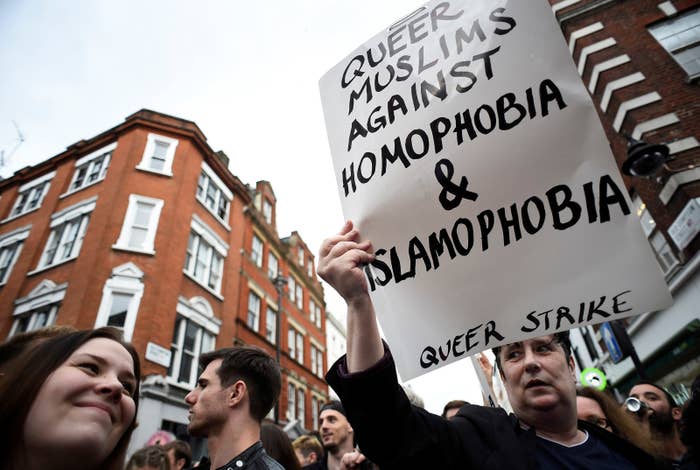
"I wish we didn't have to be brave just to continue living."
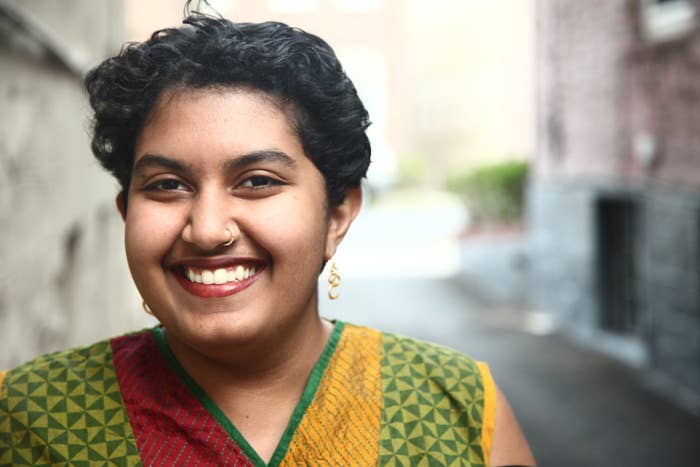
Jordan Alam, 24, is a queer Bengali American writer and activist living and working in Seattle.
"When I heard about Orlando, I felt gutted. Glued to the news, but reviled by it. Fearing backlash and seeing it immediately online from all sides. A deep desire to hide again; I had cultivated so much safety and love within my communities and now it felt like this had been reversed. I had to work during the day and I had to take a breath to keep from crying as new information kept rolling in. I had to break my fast for this Ramadan today because of emotional strain.
"I am fortunate that my people, online and off, have understood and talked about the complexities of resisting Islamophobia as well as homophobia — but I feel like I'm walking on eggshells. I see what other folks have been experiencing and combating in their social media feeds and in the streets, and I want to be helpful but I have a fear that putting myself forward will make me more of a target of violence.
"We will not be erased in this tragedy. We will not be pitted against ourselves and others — we are both and all things. It's not 'queers versus Muslims' and it has not been historically. I am glad to see a lot of my comrades being brave and showing up in media, but I really deeply wish that it was under different circumstances. I wish we didn't have to be brave just to continue living."

"A lot of it is based on cultural issues, not based on the faith itself. People need to step back and look at why they believe these things."
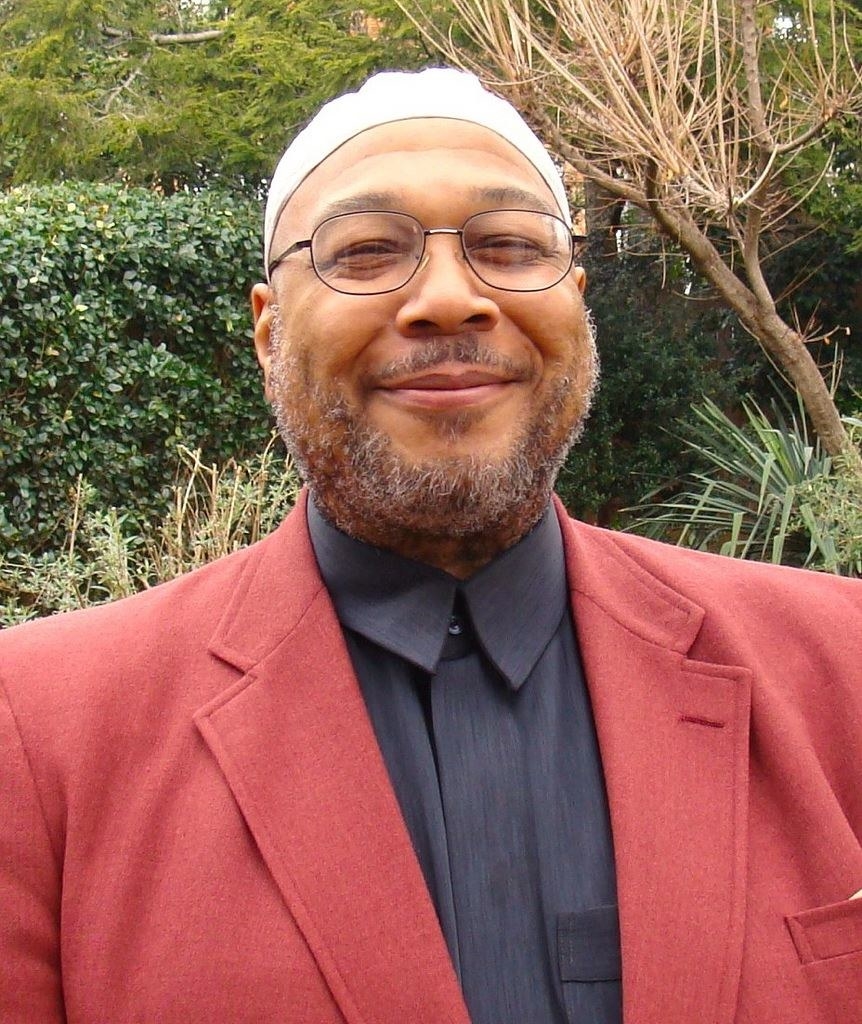
Daayiee Abdullah is the only openly gay imam in the United States. He leads the Masjid Nural Isslaah, a progressive Muslim prayer center in Washington, D.C.
"One of the issues here is that a number of Muslims are not willing to look intensely, internally to see that certain ideas that they may carry [such as homophobia] have no place in the Western culture. And therefore, if this culture is not the culture for them, and they believe that certain types of things should not exist, then they should go to those theocracies where those laws can be abided by. And if they cannot do so, then they're not living a true life as a Muslim, because they're being silent about something that they hold deep animosity about. This is something that can cross a number of different barriers — not just the LGBTQ thing, but racism, as well. A lot of it is based on cultural issues, not based on the faith itself. People need to step back and look at why they believe these things.
"I got a call from CAIR [the Council on American-Islamic Relations, a major Muslim advocacy group] this morning. They've never called me. I've known those people for the last 20 years, and they've never called upon me to participate in anything. So that means there's progress."

"We're torn between needing to defend the faith that gives us strength, and needing to resist the homophobia and the transphobia and the spiritual violence that are very real parts of our everyday experience as Muslims."
Mahdia Lynn is a Muslim trans woman in Chicago. She is the coordinator of the Transgender Muslim Support Network and is also affiliated with Third Coast Queer Muslims.
"There is a succession of feelings when you learn about something like this. There is the moment of learning that dozens of people have been murdered, then learning they were murdered because they were gay, because they were trans, because they were queer. Just dealing with that heartbreak and fear and frustration. Then, to learn that the person that did the shooting is Muslim. There's just — there's just this sinking feeling. Because we know that whenever this happens, it almost immediately means retribution for the Muslim community. So there's this two-sided, abject fear. We cannot be safe as visibly Muslim persons, and we cannot be safe as queer people.
"There are people that find strength in Islam, and to see it portrayed as something that's vile — it's just horrifying [...] but at the same time we're all coming from experiences of spiritual violence, of deeply rooted homophobia. And homophobia isn't even the right word — it's hatred. It's violence. And if it's prevalent in Islam it's because it's prevalent in the world. So we're torn between needing to defend the faith that gives us strength, and needing to resist the homophobia and the transphobia and the spiritual violence that are very real parts of our everyday experience as Muslims.
"I'm seeing statements from imams and from Muslim organizations, over and over again, decrying the violence, praying for the victims, but never once addressing that these are gay people being murdered, trans people, queer people being murdered. There's a disconnect between the reality and what's being spoken, because there's a reluctance to admit that Islam has a very serious issue with homophobia."

"Islam is shaped by the richness of the many cultures and traditions we represent."
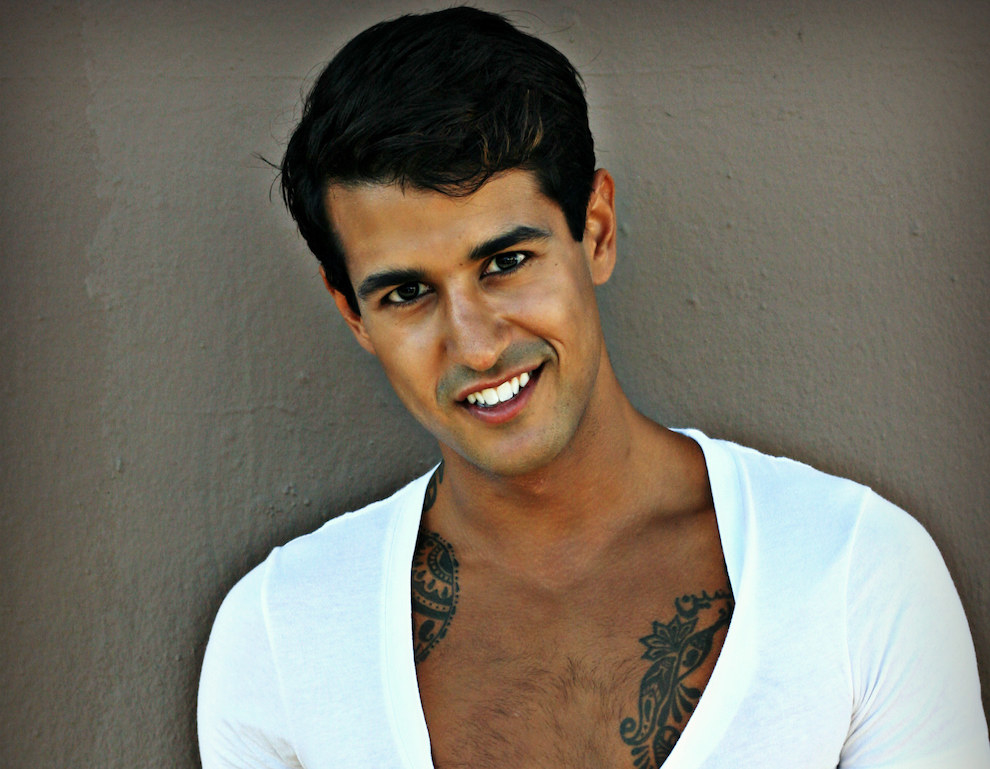
"I was brushing my teeth when I found out about Orlando — I brushed so hard my gums started bleeding. I felt broken. How else am I supposed to feel when our people (queers) are attacked and killed by my people (Muslim)?
"I love being a queer Muslim. As a queer Muslim, I occupy a position on the margins of both the queer and Muslim communities. While it's imperative to address the material struggles and disparities of marginalization, being on the outside is also a blessing. It's only from the margins that I get to develop a critical perspective that, with other queer Muslims, is cultivated and transformed into a creative energy which we've used to generate a truly beautiful community of our own.
"Islam, to me, means social justice. I learned about grassroots activism and standing up for my beliefs at my hometown masjid, the Kalamazoo Islamic Center. Led mostly by women elders like Gulnar Husain and Shadia Kanaan, we organized and marched in opposition to the wars in Iraq and Afghanistan and against the U.S.-funded Israeli apartheid in Palestine.
"Islam also means community. Although my relationship with Allah is mine and mine alone, my spiritual practice of Islam happens only in community with my Muslim family, my ummah: we pray together, we fast together, we make pilgrimage together, we celebrate together, and we mourn together.
"Last, and perhaps most importantly, Islam means diversity. We are not just Arab. We are from Nigeria and Indonesia and China and India. Islam is shaped by the richness of the many cultures and traditions we represent."

"I think I would be less devout if not for queer and trans Muslims helping me to remember the best of our faith, and how it can empower and inspire us daily."

Aaminah, a 26-year-old currently teaching at a college in Louisiana, identifies as a bisexual nonbinary femme.
"While I was born to Muslim parents, my personal acceptance of Islam as my faith didn't happen until I was in my late teens, after I had finished reading the Qur'an for myself. To me, Islam is a source of peace, comfort and joy in my life. The doctrine of surrender to Allah helps me to put my life and any problems I face in perspective, while giving me the strength to face challenges head-on. My faith is a very personal thing to me — a private connection between myself and my God, and through that God, the rest of the universe/creation.
"Islam and queerness are just two aspects of my identity. On an internal level, I don't feel as though there's much of a conflict. On a community level, queerness has actually helped reconnect with and reaffirm my faith, as I've found communities of queer and trans Muslims online who've become like kin to me. I think I would be less devout if not for queer and trans Muslims helping me to remember the best of our faith, and how it can empower and inspire us daily.
"When I heard about Orlando I felt sadness, then fear — both as a queer person and a Muslim. I thought immediately about how often I and many of my loved ones — both Muslim and otherwise — frequent gay bars and other supposedly safe spaces, and I felt scared for all of us. But at the back of my mind even then was that sense of dread I feel whenever Islam is in the news: "Oh boy, here we go again." The Islamophobic messages started soon after that, and they haven't stopped yet."

"I don't think there's much room for people of faith in the queer community, which claims to be so inclusive."
Meena Majid co-founded Noor, a safe, confidential gathering space for queer Muslims in Seattle. They identify as genderqueer.
"[After the shooting] I realized that, OK, great — these identities that have been at conflict within me are now at conflict on the outside. It was like everyone was seeing my insides.
"I think there's a very serious conversation about to start, and I don't think it's for the better. I'm happy this erasure is being lifted off queer Muslims. But there are going to be many, many Muslims who are given a further sermon on this — it happened during Ramadan, maybe this is a sign, or whatever bullshit they want to talk about. And there's going to be a lot of gay people during Pride who are going to be holding up signs for Orlando and spitting on all the queer Muslims that walk by.
"I actually teach a workshop called Islamohomophobia. People come to it thinking they're going to learn about homophobia in Islam, but it's actually about Islamophobia in the queer community. I don't think there's much room for people of faith in the queer community, which claims to be so inclusive.
"In order to help queer Muslims grieve in this situation, I think we should allow them the space to grieve [...] I suggest people step back and listen. Show up at vigils, show at protests, and use your power in those ways to have other people's voices heard and not your own. And give them their space. Space is what we need, because we're tired of not being seen."

"It's difficult enough being a queer muslim, a woman who wears hijab, trying to navigate non-Muslim queer spaces and not have people be put off by your presence or assume you're merely an ally."
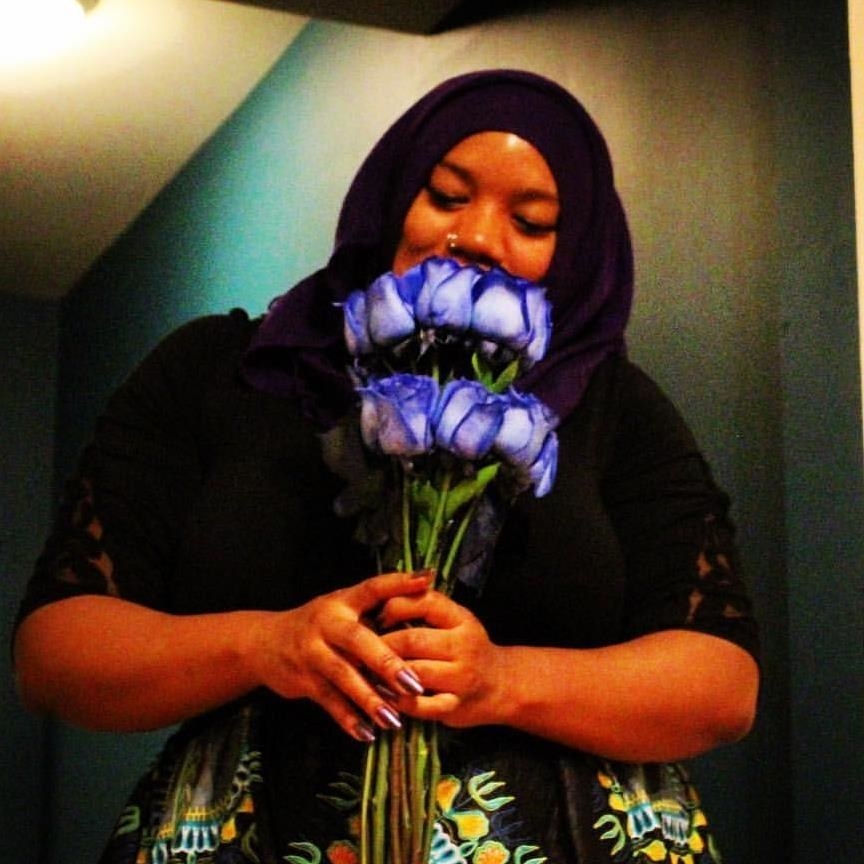
Zaynab Shahar is a queer, black doctoral candidate at the Chicago Theological Seminary, where she received her master's in Religious Studies. In her spare time she is a co-founder of the Third Coast Queer Muslims of Chicago and runs a Tumblr for queer Muslims.
"It's difficult enough being a queer muslim, a woman who wears hijab, trying to navigate non-Muslim queer spaces and not have people be put off by your presence or assume you're merely an ally. So, then the question becomes how does that work continue, how does it take shape as this cultural moment we're in unfolds, what can we do to support our members but also the community at large.
"Khwaja Moinuddin Chishti says in his last sermon 'love all and hate none' is 'but never refuse to bless and help the needy and the poor, the widow and the orphan, if they come to your door. This is your Mission of Peace, to serve the people.' [...] I take this very seriously as a Sufi Muslim. If I can live a life of service to ending oppression, if I can live a life dedicated to writing and embodying activist theologies, making space for queer Muslims and queer people of faith at large to connect with the divine and each other, then I will have lived a good life.
"I want people to know that our community, like any other, is a symphony of stories, whose complexity and diversity are like the notes on a page. No one note is more important than the other, they are all essential. But it only begins to unfold if you take the time to truly listen."

"Being Muslim and queer are not mutually exclusive. We are here, we exist — and we are here to help bridge the divide that the politicians and corporate media makers are creating among our communities."
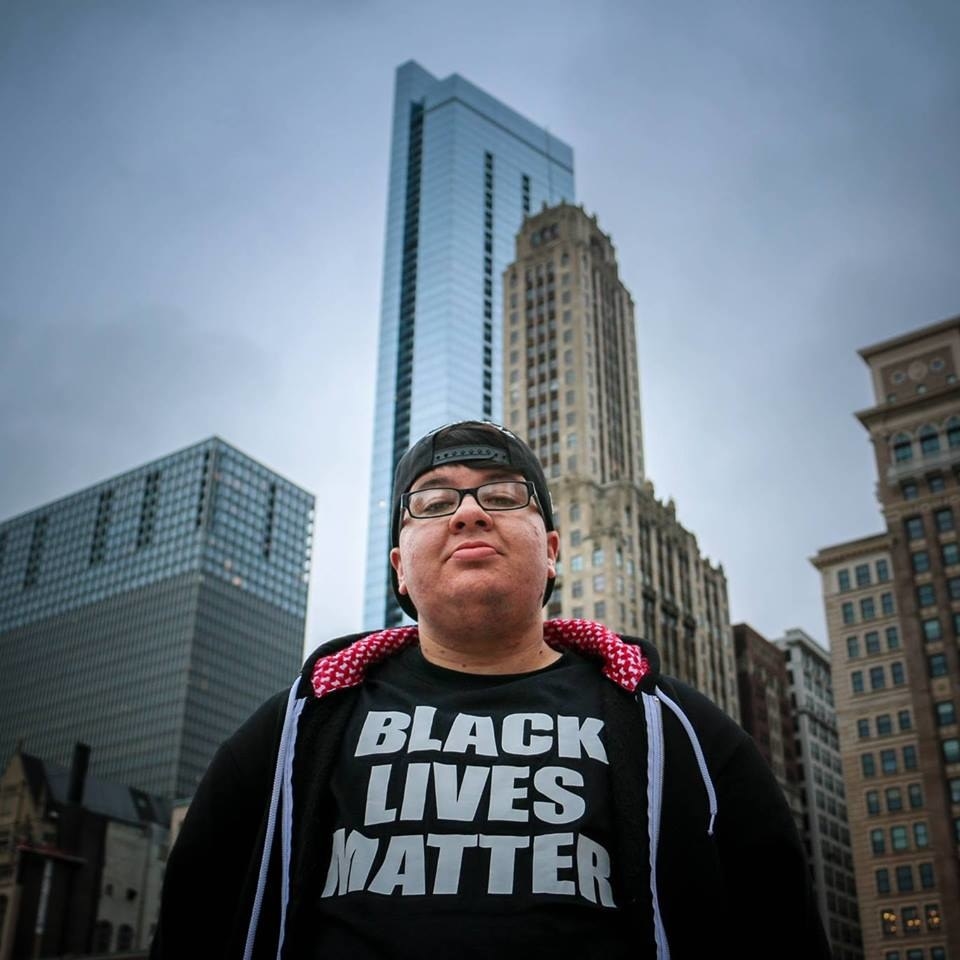
Izzaddine Mustafa, 24, is a trans man currently living in Brooklyn, New York. He works as a social media director for a local nonprofit.
"When I first came out, I was afraid of how my Muslim community would react. I was afraid that you cannot be Muslim if you are queer, and you could not be queer if you were Muslim. I then came to realize that to be Muslim and queer goes hand in hand with the idea that you must love your full authentic self in order to fully love and embrace others.
"When I heard about what happened in Orlando, I felt numb. After a week of Ramadan celebrations and celebrating pride in Brooklyn the same night as the shooting, I was in disbelief. I read the name of the shooter, and instantly my heart sunk. My heart sunk for the 50 victims of this terrible hate crime. My heart sunk for the LGBTQ community, and especially to the black and brown LGBTQ community in Orlando who were directly affected by the violence. My heart sunk for the Muslim community, who will feel the backlash of this horrible homophobic/transphobic violence.
"Being Muslim and queer are not mutually exclusive. We are here, we exist — and we are here to help bridge the divide that the politicians and corporate media makers are creating among our communities."

